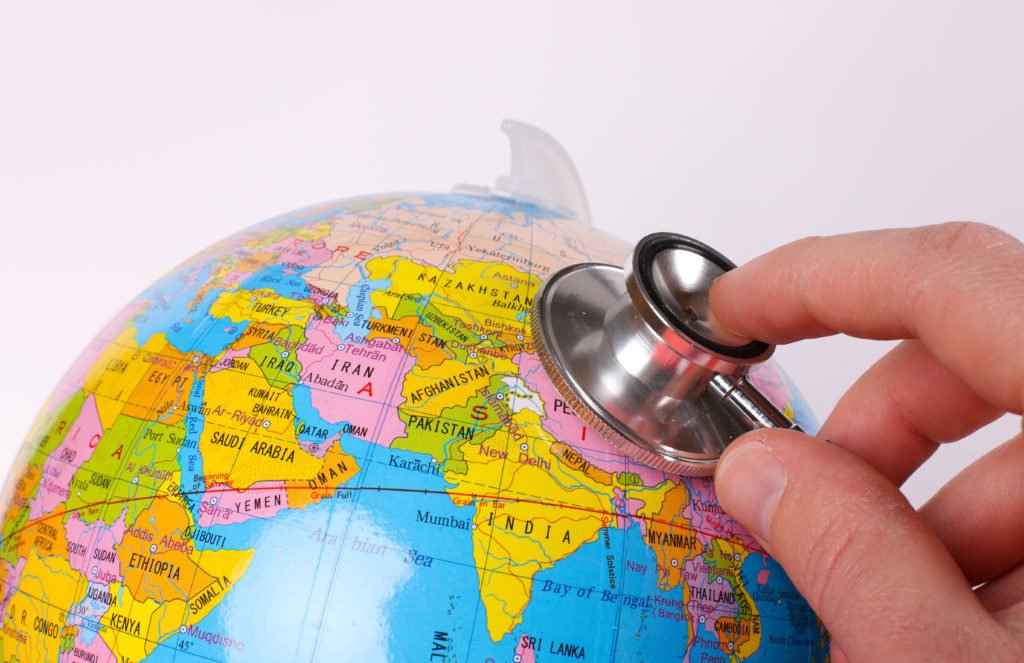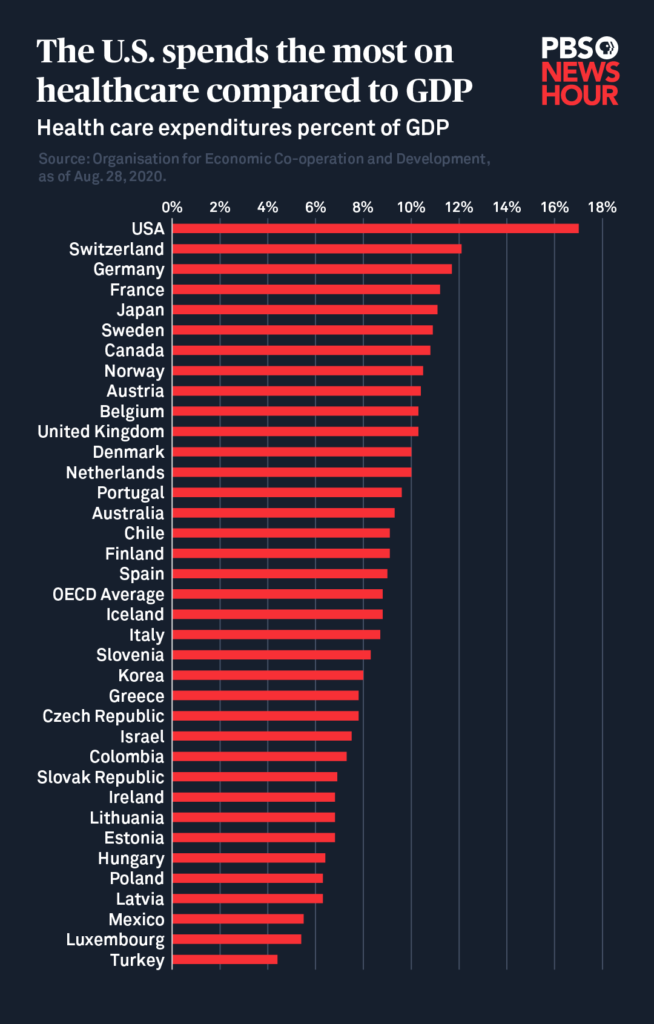
In ancient Greece and Rome, the healers used to build therapeutic temples surrounding thermal spas and bathhouses for people to relax and rejuvenate from illnesses. Patrons from far and wide came to Greece to pay respect to Asklepios(God of Healing) and understand the healing practices of the healers and treatment. Almost 5000 years ago the holistic approach of Ayurveda and Yogic medicine made India very popular for medical tourists and based on analytics it is still persevering in modern times. These are some of the earliest records of medical tourism and its importance.
The Healthcare services sector is not only important to patients but employs many people from multiple strata. It measurably impacts revenue with major government, private sector and patient spending. Medical tourism is a facet of this, many countries suffer from moderate to high costs for basic healthcare and have to opt for healthcare services abroad and many insurance companies support that decision.

The most common reason for Americans to go bankrupt is due to high medical costs. Almost 62.1% of the population have filed bankruptcies to that effect. Similarly, 32% of Americans suffer from debt due to the high cost of basic healthcare services. And this is not unique to the USA, many countries like Australia, Germany, South Africa and Singapore charge a high cost for medical procedures and transplants.

Breakdown of cost, Source: https://www.singlecare.com/blog/medical-debt-statistics/
A Liver Transplant is a complex time-bound procedure that is expensive and requires diligent pre-procedure screening and aftercare treatment. In different countries, patients have varyingperiods of weighting time and even sketchy organ procuring process. It is important to be mindful to register to a recipient list and weigh the pro’s and con’s of the facility before getting the procedure done.
A patient after consultation with a liver specialist, surgeon and anaesthetist is screened with lab tests, some patients who take regular medications like blood thinners will be asked to stop taking them before the procedure.
Post-surgery the patient will be evaluated in the hospital for the possibility of rejection and maybe prescribed heavy anti-rejection medicines. A transplant can be very overwhelming both physically and mentally. A patient must be supported in every step of this process.
Transplant Doctor
Takes care of all non-surgical aspects of the transplant like pre-transplant evaluation, organrejection, post-surgical recovery and long-term monitoring.
Transplant Surgeon
Performs the actual transplant surgery. The surgeon will be involved in both pre andpost-surgical monitoring along with our transplant doctor.
Medical Care Team
The in-hospital staff at the clinic, operating room, the ICU and the wards take care of you during and after the procedure.
Transplant Coordinator
Coordinates your care from beginning to end. They juggle many aspects of transplant including:
● Evaluating patients for transplant eligibility.
● Work patients up for organ transplant.
● Evaluate potential donor organs for transplant suitability.
● Arrange transplant surgery for recipients.
● Provide support and education to the patient before, during, and after their transplant.
Nutritionist
Provides you with a customized diet plan according to your needs before and after the transplant surgery.
Physical Therapist
Acts as a personal coach & helps you determine an exercise regimen post-transplant. This will help you keep fit mentally &physically after the transplant aiding in optimal recovery.
In Australia, the cost of a transplant is roughly $153,200. The average wait period is 8 to 12 months, with pre-transplant treatment, procurement, hospital admission, Doctors Fees, procedural costs.
In the USA, the cost of transplant amounts to $577,100 which includes pre-transplant treatment, procurement, hospital admission, Doctors Fees, procedural costs, 180-day post-transplant care and immuno- suppressants fee.
In Singapore, transplant procedure and aftercare amount to a hefty $400,000. The operation cost is S$30,000, pre-surgical evaluation and post-surgical care, outpatient and in-patient treatment,hospital charges, lab tests and prescribed medicines.
In South Africa, a patient needs $300,000 for a successful liver transplant. The transplant procedures are sketchy in South Africa, so patients need to be wary about the hospital and specialist before making a choice regarding liver transplant surgery.
In Germany, a transplant is billed at $300,000. They have a highly regulated healthcare sector with a high cost and a low number of donors. Surgical treatment, medication and evaluation is also expensive and takes a long time.
LiverIndia offers international patients liver transplant coverage at around $28500. It includes the pre-transplant evaluation, the surgery itself and the post-surgery recovery period of 2 to 3 months which includes, anti-rejection medication and constant monitoring.
There are many pitfalls if you put your health in the hands of a bad doctor, medical team or institution. Healthcare is a human right that needs to be universally available and accessible to all. Medical Tourism is a viable alternative to expensive healthcare choices. Good health is what we all strive for and it is important to leverage the pro’s and con’s to make an informed medical choice. With outsourcing healthcare, you can easily eliminate the strain of expensive medical bills and avoid any possibility of medical bankruptcy.
Copyright © 2021. All rights reserved.